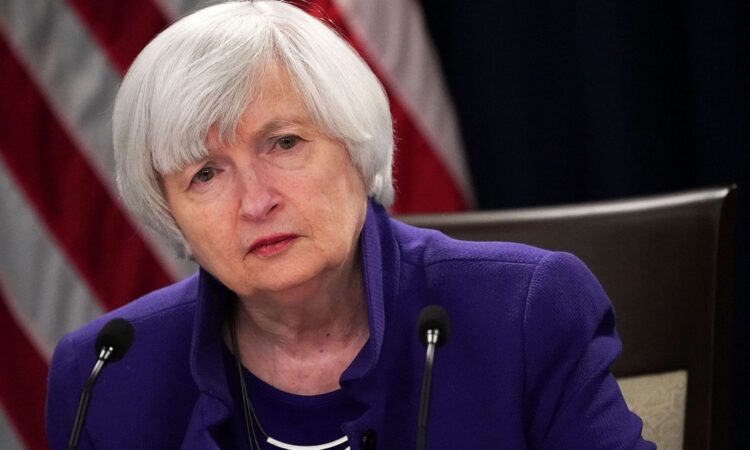
The US Treasury Secretary Janet Yellen has once again admitted that sanctions affected the US dollar. She testified on Tuesday before the House Financial Services Committee on how to protect the status of the US dollar. Yellen raised concerns about the US pressing sanctions on Russia in 2022 that led BRICS to kick-start the de-dollarization agenda. She said that “the more sanctions the US impose, the more countries (BRICS) will seek financial transaction methods that do not involve the US dollar”.
Also Read: BRICS: Central Banks Ditching US Dollar, Buying More Gold
The Treasury Secretary revealed that sanctions led to more developing countries seeking alternative options to the US dollar. BRICS took advantage of the situation and is now on a world tour convincing developing countries to use local currencies.
When the US weaponized the dollar, BRICS mobilized like-minded countries and rallied them to use local currencies for trade. Read here to know how many sectors in the US will be affected if BRICS ditches the dollar for trade.
Also Read: BRICS: India and Russia Agree to Ditch US Dollar
BRICS: Janet Yellen Admits Again That Sanctions Affected the US Dollar


The tit-for-tat option played significantly well and now several other developing nations want to pursue the de-dollarization route. The development will weaken the international position of the US dollar and bolster the local currencies. “This will have a certain impact on the international status of the US dollar. In the short term, the position of the US dollar should remain stable, but over time, its position may weaken,” said Zhao Qingming, a Beijing-based financial expert.
Also Read: After Pausing BRICS, Saudi Arabia Starts Issuing US Dollar Bonds
BRICS has made the de-dollarization initiative a long-term agenda with several trade potshots against the US dollar. Countries in Asia, Africa, South America, and Eastern Europe are looking to join the de-dollarization bandwagon. The US dollar remains at the crosshairs of a paradigm shift that could see it sit in the backseat of the global economy.



